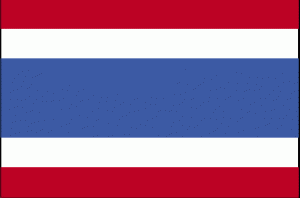 A coalition of eighteen Thai civil society groups has written an open letter to the European Parliamentary delegation to Thailand. The letter warns that the TRIPS-Plus provisions in the trade agreement between EU and Thailand – including border measures, data exclusivity, patent term extensions, and protection for new indications – would block access to generic medicines. It points out that this would violate the Doha Declaration on TRIPS and Public Health, as well as the European Parliament Resolution on Major and Neglected Diseases in Developing Countries (2005/2047(INI)).
A coalition of eighteen Thai civil society groups has written an open letter to the European Parliamentary delegation to Thailand. The letter warns that the TRIPS-Plus provisions in the trade agreement between EU and Thailand – including border measures, data exclusivity, patent term extensions, and protection for new indications – would block access to generic medicines. It points out that this would violate the Doha Declaration on TRIPS and Public Health, as well as the European Parliament Resolution on Major and Neglected Diseases in Developing Countries (2005/2047(INI)).
The coalition of civil society groups urges Members of the European Parliament “to retain their intent to recognize health benefits before economic returns and also apply it to the EU FTA negotiation in the same manner as they did to the ACTA. We also request the European Parliament’s members to scrutinize the on-going FTA negotiations with TRIPs-plus requirements, which is considered contradicting the European Parliament Resolution.”
The full text of the letter is below:
Dear European Parliament Delegation to Thailand,
We, on behalf of civil society organizations working to promote access to affordable medicines for all in Thailand, would like to applaud the European Parliament for their determined decision on the objection of the Anti-counterfeiting Trade Agreement (ACTA). The action as such has confirmed the European Parliament’s intent that underlines the people’s rights to health and recognizes people’s public health before trade benefits.
ACTA, with provisions that undermine the global access to quality and legitimate generic medicines, is considered as a public health threat. With the stringent restrictions in the ACTA, generic life-saving medicines are at risk to be seized at a port in the middle of the consignment to destination countries as they are merely suspected the pharmaceutical products to infringe intellectual property (IP) filed in the in-transit countries. Despite the fact that they are quality and safe medicines and are off-patented or not patented both in the origin and destination countries, the in-transit seizure mechanism, known as the border measure, will block the shipment of legitimate and legal generic medicines to the hands of million patients in developing and less-developed countries who need the life-saving medicines at affordable prices. The provision is considered stricter than the global IP standard (WTO’s TRIPs Agreement) and totally against the WTO’s Doha Declaration on TRIPs and Public Health.
Even though the European Parliament recently achieved a consensus to reject the ACTA, we still have grave concerns that a provision similar to the ACTA’s border measure has been integrated in the free trade agreement (FTA) that the European Union is now negotiating or will open the negotiation with their target trade-partner countries, including ASEAN, India, and Thailand. Worse than that, a great number of additional provisions more stringent than the WTO’s TRIPs Agreement, known as TRIPs plus provisions (e.g. data exclusivity, the extension of patent protection period, stricter IP protection enforcement, data exclusivity on new indication, investment chapter, etc.), have been included in the EU FTA’s current text. These TRIPs-plus provisions will inevitably prevent the generic medicines’ competition, technically paralyze the use of public health safeguard measures by their trade-partner countries, and eventually undermine access to essential medicines of people in developing nations.
By imposing the FTA with TRIPs-plus provisions upon the trade-partner countries, the European Commission for Trade is acting in a direction against the motion for a European Parliament Resolution on Major and Neglected Diseases in Developing Countries (2005/2047(INI)). In the Article 1, it calls for its approach to be broadened to other neglected diseases; highlighting the fact that the actions of the Commission can all be applied to other diseases beyond HIV/AIDS, Malaria and TB. And, in the Article 61, the European Parliament calls on the Commission and the Member States to give active support to the implementation of the Doha Declaration and to oppose any action taken by WTO member states that undermines the unanimous commitments made in the declaration on intellectual property and public health, in particular through the negotiation of ‘TRIPS plus’ clauses in the framework of regional free trade agreements.
We, therefore, would like to urge the European Parliament’s members to retain their intent to recognize health benefits before economic returns and also apply it to the EU FTA negotiation in the same manner as they did to the ACTA. We also request the European Parliament’s members to scrutinize the on-going FTA negotiations with TRIPs-plus requirements, which is considered contradicting the European Parliament Resolution.
Sincerely yours,
Thai Network of People Living with HIV/AIDS
AIDS Access Foundation
Alternative Agriculture Network
Friends of Kidney-failure Patients Club
Cancer Patient Network
Foundation for Consumers
The Rural Pharmacist Foundation
The Rural doctor foundation
Foundation for AIDS Rights
Thai NGO Coalition on AIDS
Drug Study Group
Biodiversity and Community Right Action Thailand, (Biothai)
Health Consumer Protection program, Chulalongkorn University
Social Pharmacy Research Unit, Chulalongkorn University
Drug System Monitoring and Development Program, Chulalongkorn University
Thai Holistic Health Foundation
Ecological Alert and Recovery – Thailand
FTA Watch




